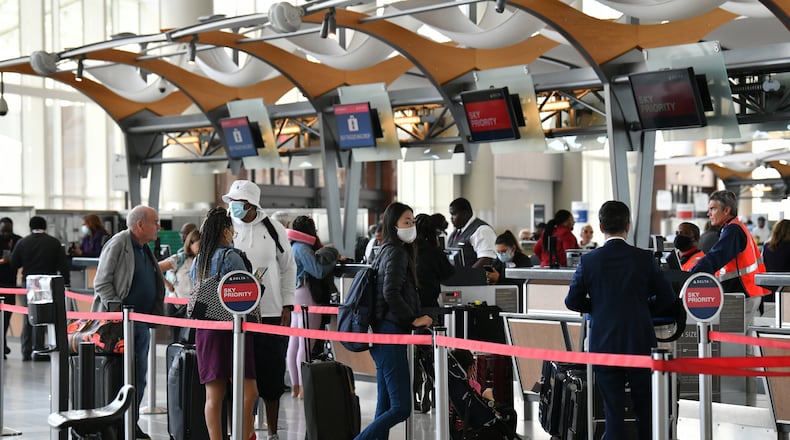Delta Air Lines says its air fares are 25-30% higher this summer on average compared with 2019, the year before the pandemic, as high fuel prices and strong demand drive up the cost of flying.
Ed Bastian, the CEO of Atlanta-based Delta, cited the figures during an investor conference Wednesday, adding that “we’ve never seen anything of that scale.”
Delta, like other airlines, is battling inflation, soaring fuel costs and labor shortages, amid robust demand for travel as people are more willing to take vacations and travel for business after two years of pandemic-depressed demand. The Consumer Price Index for airline fares rose 33.3% over the last year, the largest such increase since 1980, according to a U.S. Bureau of Labor Statistics report in May.
Fares are so high that Delta expects to see its total revenue this quarter reach 2019 levels, despite the fact that it is operating only about 82% of the flight capacity it had previously.
The result is that the airline is selling tickets to only those who are willing to pay significantly more expensive fares, which have been hiked in part because jet fuel costs are about 70% higher than in 2019, Bastian said.
Delta has shifted its focus to premium travelers “that can afford that,” Bastian said.
During the first two years of the COVID-19 pandemic when business travel was mostly halted, Delta saw that its premium seats were more often selling to people paying out of pocket, rather than corporate travelers. Those premium leisure travelers have become a bigger share of Delta’s customer base, and Bastian said now, premium travelers account for nearly one-third of its demand.
As a result, the airline is putting more Comfort+, first class or business class seats on its new planes. On Delta’s new Airbus A321neo jets that it began flying last month, for example, nearly a third of the seats are Comfort+ or first class. The 194-seat plane has 20 first class seats and 42 Comfort+ seats, and debuted on Delta’s Boston-San Francisco route, one of the domestic flights it will fly.
Business travelers are “now having to fight their way back onto the airplanes because of the premium (leisure) consumers that we have,” Bastian said. That competition for seats is also driving up fares.
Airlines often try to keep some seats aside for travelers who need to travel at the last minute and are willing to pay a premium, and “the only thing we can do in this environment in order to protect seats and protect inventory is pricing,” Bastian said.
But paying more doesn’t necessarily mean a great experience when traveling.
Delta struggled more than any other U.S. airline over Memorial Day weekend, when it canceled hundreds of flights across the country, including at Hartsfield-Jackson International. That left some travelers stuck, missing trips and frustrated with Delta’s customer service.
Some Delta customers have complained on Twitter, including one who said she is a platinum-level Delta frequent flier and booked first class, and was frustrated over a flight cancellation and long wait to rebook.
Another customer said on Twitter a cancellation ruined family plans. After following up with the airline for help, an agent on Delta’s official Twitter account responded: “Can you calm down and allow me some time to work please ??”
“This weekend was disappointing, but we’re on it,” Bastian said.
The airline has had difficulty training new pilots quickly enough to ramp up its operations to meet demand. As a result of that and other staffing issues exacerbated by storm disruptions and the pandemic, the airline had to cancel hundreds of flights. In an attempt to reduce the chance of last-minute cancellations, the airline is cutting its flight schedule for the summer.
About the Author
The Latest
Featured



